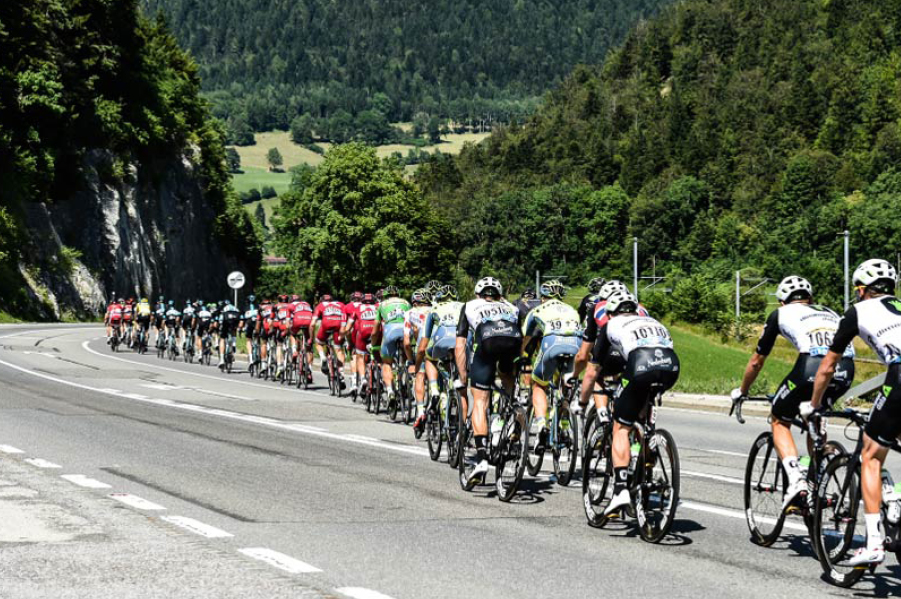Among those watching in Berne, the mood is relaxed and celebratory as they cheer their heroes on. But the riders’ faces are full of tension and pain as they finish a gruelling 206km stage, won by the Slovakian Peter Sagan.
The Tour de France is described as the world’s toughest endurance event. 2015 winner Chris Froome averaged an incredible 40km/h over 3,360km in just 23 days, on a course that runs through towns and countryside, including many mountain passes.
Replacing fluid lost during exercise
Riding at the elite level is incredibly physically demanding, so it’s vital that the professional riders get their nutrition just right on the bike. This includes replacing the significant amounts of fluid that they lose through sweat.
Tour de France cyclists lose, on average, seven litres of fluid during each race stage. They need to drink around 10 litres of fluid, or 20 half-litre bottles, to ensure they still perform at their best, but also to safeguard their health.
Why is it important to replace fluid lost during exercise?
Even mild dehydration can affect how we perform mentally and physically. It can cause headaches, thirst, tiredness and a decrease in alertness, concentration and memory. Whatever our daily routine, we all need to drink the right amount of water.
Hydration can improve our mental performance
University of California, Davis and Nestlé scientists collaborated on a recent study published in the journal Appetite, which tested the benefits of water drinking on working memory and attention among 52 children aged 9-12 years old.
The children performed cognitive tests at the start of the morning before breakfast, and at the end of the morning after having drunk 750ml of water over a two-and-a-half hour period. They repeated the process on a different day without the water. The team monitored their hydration status by testing urine samples.
Children who showed smaller fluctuations in their hydration status after drinking the water did significantly better in cognitive tests than during the non-water drinking day.
“Our research confirms that drinking water will have a beneficial effect on cognition in children, but this benefit varies depending on how much water they generally consume,” says Simona Ghetti of University of California, Davis, who co-authored the study.
“We continue to encourage children to maintain regular water consumption, in line with their individual requirements.”
Vittel refreshes the 2016 Tour
Nestlé is committed to promoting hydration for everyone, as a part of a healthy diet and lifestyle, and French mineral water brand Vittel, which was first marketed in 1854, has been an official partner of the Tour de France since 2008.
Vittel forms an important part of the race caravan. It also sponsors the ‘Flamme Rouge’, the red flag that tells the cyclists that there is only one kilometre left to go in each stage.
The Nestlé Waters brand continues a proud tradition dating back to 1923, when Perrier first supplied water to the Tour, which legendary French rider Henri Pélissier won that year.
Vittel will distribute one million bottles of water to spectators at this year’s race, in the spirit of sharing, vitality and fun.
source: nestle.com












